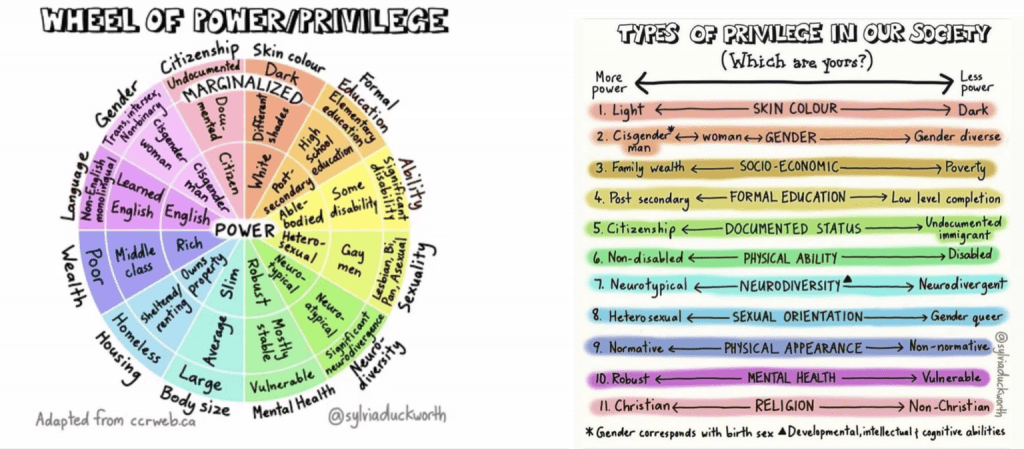
Other thoughts on living a good life (An incomplete list)
This post is going to provide a quick overview of three of the main ways I’ve tested out about how to be a good person.
The kyriarchy
You probably know what the patriarchy is: the system built into our society that perpetuates sexism. Well, the kyriarchy is the same, except it refers to all the different types of oppressive societal systems, such as racism, sexism, heterosexist (homophobia), ableism, ageism, classism, and so on. Any way that a person can be divergent from an agreed norm leads to the chance for some people to be privileged and some to be oppressed, and of course, all these different levels of privilege can be combined in different ways for different people. For instance, I am less privileged because I’m a woman, but I have almost every other form of privilege, starting with being straight and white and middle class. This is what the term ‘intersectionality’ means, and it is well illustrated in this diagram:

For me, being an intersectional feminist means being aware of how these forms of oppression and privilege affect those around me, and doing what I can to challenge systemic injustices and personal biases when I find them in order to be an active ally. If you’ve never thought much about a lot of this, I would recommend this website as a gentle and welcoming starting point.
Effective altruism

There are a lot of problems that need fixing in this world, and in order to cope, we all have to do a certain amount of building boundaries about what we spend time thinking and worrying about. The main thing that has helped me to have a good balance between having compassion for the suffering in the world and not feeling overwhelmed and crushed by it is effective altruism.
Effective altruism is about answering the question of how to do the most good with the resources we have. This leads to a series of philosophical and practical questions around how to determine what ‘the most good’ even means, and they have a very good guide of the core concepts on their website. For me, it boils down to taking the Giving What We Can pledge.
This pledge states that I will give 10% of my income throughout my working life to the most effective charities and causes that I can find. Luckily, the effective altruism movement has set up the ‘EA Funds’ to do the research and hard decisions for me, so in the end my money goes to four relatively-underfunded cause areas:
- 45% of my pledge goes to Global Health and Development – this mainly focuses on direct healthcare, especially malaria prevention, which is done by distributing bed-nets via the Against Malaria Foundation.
- 25% of my pledge goes to Animal Welfare – this focuses on helping animals who are not typical pets, for instance those in factory farms.
- 15% of my pledge goes to Long-Term Future – this is a bit more ‘out there’, but it essentially involves preparing for potential existential crises, such as what might happen when someone invents genuinely independent artificial intelligence. Yes, it feels a bit ridiculous and sci-fi, but it is a genuine threat. This article is what persuaded me to take it more seriously.
- 15% of my pledge goes to Effective Altruism Infrastructure – this is about growing the effective altruism movement in order to get more people involved in evidence-based giving. It was actually career advice from 80,000 Hours that led to me becoming a web developer.
I made this pledge six years ago, and I recently sat down and calculated how much I’ve given so far. It comes up to £21,800. I find this staggering, as I haven’t found it especially difficult to put this money aside.
What is even more mind-blowing is that, at least for the money that has been given to the Against Malaria Foundation, I can calculate based on their meticulous evidence-gathering that I have saved at least seventy people from dying from malaria, probably mainly children under five and pregnant women.
There is nothing like the feeling of knowing for certain that I have made a significant positive impact on the world. Instead of guilt and powerlessness, I have some peace of mind and hope, and that is worth every material sacrifice (not even that big) of having a slightly reduced salary.
Being vegan
My reason for going vegan comes down to the same reason I find taking the Giving What We Can pledge worthwhile: I can have peace of mind that I am not causing unnecessary suffering, rather than dodging a feeling of guilt every time I eat. This is not only with regards to killing animals, but also to making one of the most significant personal contributions that I could to reducing my carbon footprint.
No one likes to be faced with someone telling them they are inflicting cruelty on others, so I won’t go on about it. Our minds are very good at rationalising why we don’t need to examine or stop doing something that we want to keep doing. If you eat meat or dairy, though, I would challenge you to try and pin down what your reasons are for doing so, and then testing those reasons against this twenty-minute TED talk by ‘Earthling Ed’. Ultimately, I think being a good person means being driven by trying as much as you can to act in line with your own ethical values, so it’s worth putting those values to the test every now and again.







